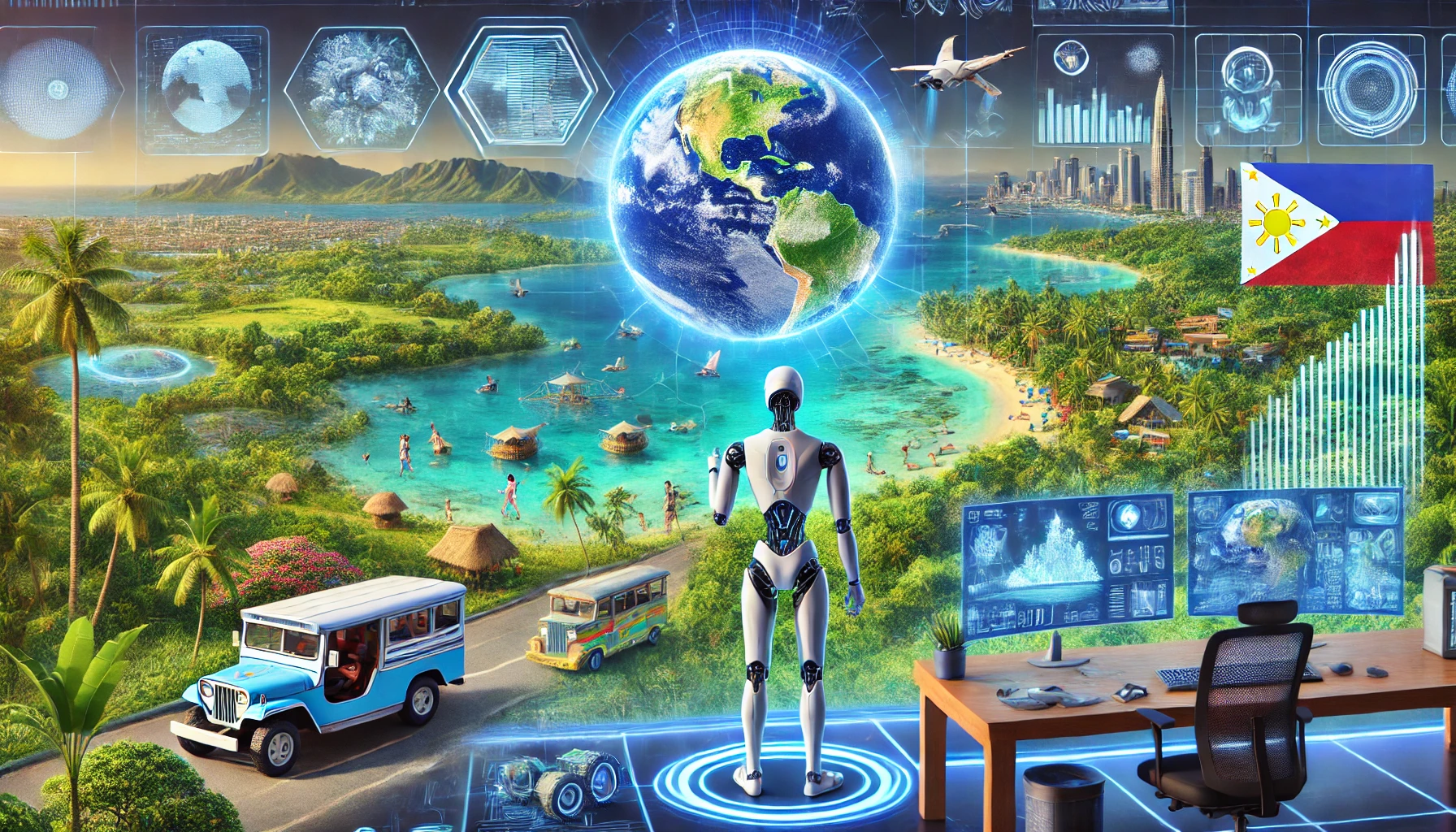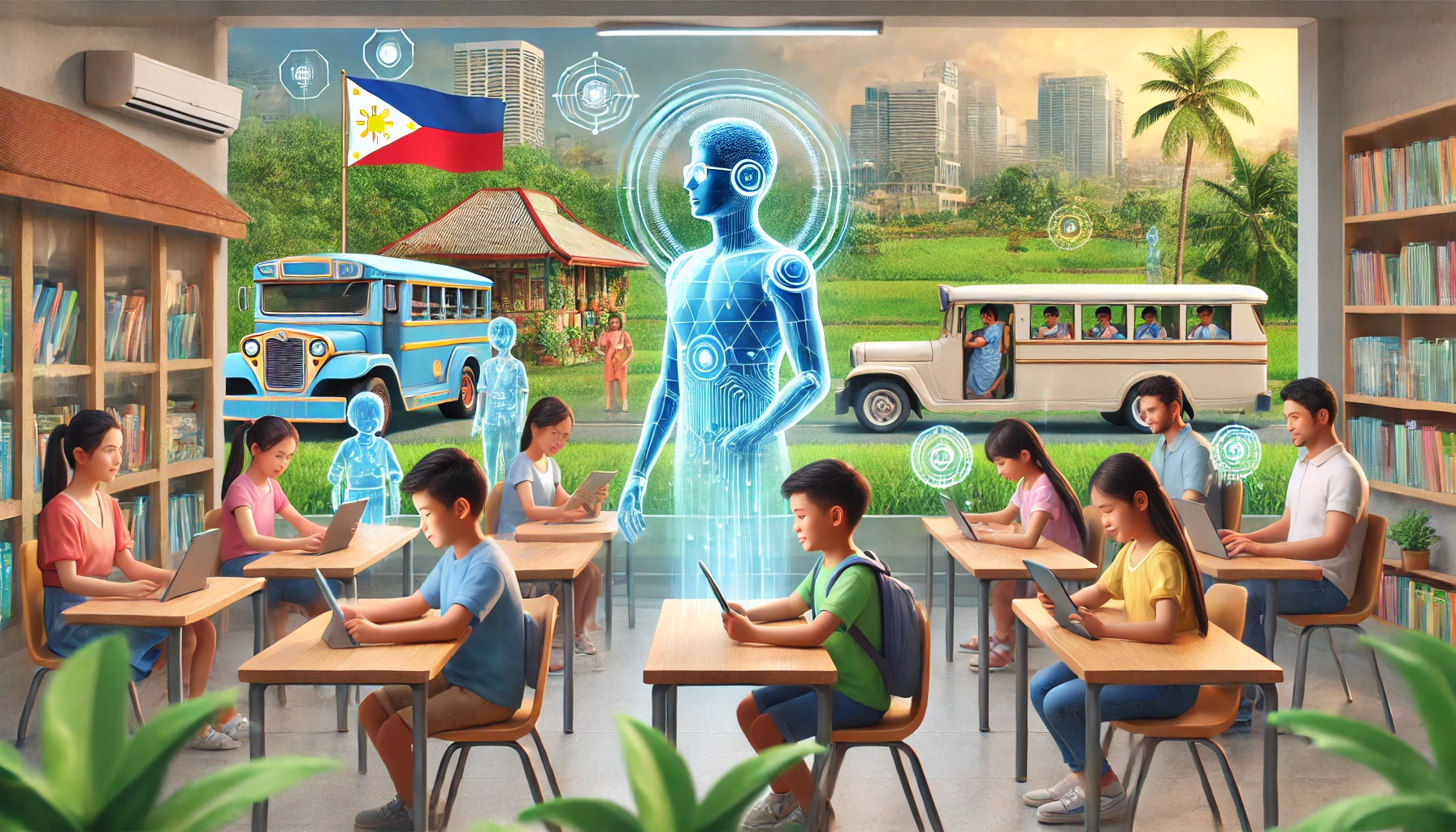The Philippines, with its rich biodiversity and natural resources, faces significant environmental challenges such as deforestation, illegal mining, pollution, and overfishing. Despite robust environmental laws, enforcement remains a major hurdle due to limited resources, corruption, and inefficiency. Artificial General Intelligence (AGI) presents a transformative opportunity to bridge this gap by enhancing monitoring, enforcement, and policymaking.
1. Real-Time Monitoring of Environmental Violations
AGI can process vast amounts of data from various sources, such as:
- Satellite Imagery: Detecting deforestation, illegal logging, or mining activities.
- IoT Sensors: Monitoring air and water quality in real time.
- Drones: Surveying hard-to-reach areas for illegal activities like poaching or dumping of waste.
By identifying anomalies and violations instantly, AGI can trigger alerts for timely intervention.
2. Predictive Analytics for Proactive Enforcement
AGI can analyze historical and real-time data to predict areas at high risk of illegal activities. For instance:
- Identifying potential hotspots for illegal fishing based on weather patterns and ship movements.
- Forecasting areas prone to deforestation due to economic activities or infrastructure projects.
This enables authorities to allocate resources more effectively and prevent violations before they occur.
3. Automated Reporting and Evidence Collection
AGI can generate automated reports with detailed evidence for legal actions, including:
- High-resolution images and videos.
- Geo-tagged data on violations.
- Sensor-based pollution records.
Such comprehensive and accurate evidence strengthens the enforcement of environmental laws and aids in prosecuting offenders.
4. Transparency and Public Engagement
AGI can enhance public awareness and involvement in environmental protection by:
- Sharing real-time data through publicly accessible platforms.
- Providing interactive dashboards showing environmental metrics like air quality or forest cover.
- Empowering citizens to report violations via mobile apps, with AGI validating reports for authenticity.
5. Policy Optimization and Governance
AGI can simulate the long-term effects of various environmental policies, allowing the government to:
- Assess the impact of conservation efforts.
- Optimize regulations to balance development and environmental sustainability.
- Identify loopholes in current laws and recommend amendments.
6. Combating Corruption
AGI systems are impartial and can reduce corruption by:
- Ensuring transparency in monitoring and enforcement processes.
- Identifying patterns of bribery or collusion through data analysis.
- Enforcing accountability for both violators and officials.
Challenges and Considerations
While the potential of AGI is immense, its implementation must address:
- Data Privacy: Ensuring that monitoring does not infringe on citizens’ rights.
- Inclusivity: Involving local communities in decision-making processes.
- Adaptability: Tailoring AGI systems to the Philippines’ unique socio-economic and environmental context.
Conclusion
Integrating AGI into environmental law enforcement in the Philippines can revolutionize conservation efforts. By enabling real-time monitoring, predictive analytics, and transparent governance, AGI can help protect the nation’s natural resources for future generations. However, collaboration between government, private sectors, and local communities will be crucial to ensure the ethical and effective deployment of AGI systems.
The future of environmental protection lies in innovation—and AGI can be the catalyst for sustainable progress. 🌱
[SEO optimized]


